Princess O'Rourke

Brief Synopsis
Cast & Crew
Norman Krasna
Olivia De Havilland
Robert Cummings
Charles Coburn
Jack Carson
Jane Wyman
Film Details
Technical Specs

Synopsis
Princess Maria, whose country has been invaded by the Nazis, lives with her uncle in exile in New York. Although Maria's uncle encourages her to marry Count Peter de Chandome, in the hope that she will produce a male heir, Maria does not like him. Worried by her lack of interest in life, Maria's uncle suggests a change of scene and books her under the name Mary Williams on an airplane flight to San Francisco. To overcome her fear of flying, Maria accidentally takes too many sleeping pills. Then, when bad flying conditions force the plane to return to New York, Maria cannot be awakened. Pilot Eddie O'Rourke offers to help her walk off the effects of the drugs, but a misguided café owner, thinking all she needs is a good night's sleep, puts another sleeping pill in her coffee, and Maria passes out. With the help of Jean, the wife of Eddie's co-pilot Dave, Eddie puts Maria to bed in his apartment. The next day, Maria wakes to find several notes from Eddie asking her to meet him at 2:00 in front of the building. Maria returns to her hotel and tells her uncle that she spent the night in the ladies lounge at the airport. That afternoon, when she meets Eddie, she is followed by a Secret Service man who reports her activities to her uncle. Eddie, believing Maria to be a common war refugee, offers to show her New York. When she suggests that they have an ordinary date instead, Eddie introduces her to Dave and Jean. While the two men play handball, Maria and Jean spend the afternoon in a women's first aid class. Maria is embarrassed to admit that she has no skills, but volunteers to let the women practice their bandaging techniques on her. Later, after the two couples dine in a Chinese restaurant, Eddie proposes marriage. At first, Maria turns him down, but he forces her to admit that she wants to marry him. Meanwhile, Maria's uncle checks into Eddie's background and is pleased to learn that he is one of nine boys and that his father was one of eleven boys. He telephones Maria's father and convinces him that marriage to an American would be beneficial to their country. He then broaches the subject to Maria, who is delighted with the idea. When Eddie learns the truth about Maria, he is stunned but pleased that she will marry him. The wedding is to take place at the White House, and Mr. Washburn of the State Department uses the train trip to Washington, D.C. to give Eddie a crash course in royal diplomacy. Eddie begins to chafe under the requirements, however, and when he discovers that he will have to renounce his U.S. citizenship to marry Maria, he rebels. At the White House, he begs Maria to marry him and live as an ordinary citizen, but she cannot easily give up her role. Later, realizing that she is enslaved to her position, Maria uses the President's little dog to carry a letter to the President asking him to use his authority to help them. As a result, Maria and Eddie are quietly married by a Supreme Court justice. When Eddie expresses his hope that the guard who acted as their witness will not get in trouble, Maria explains that the "guard" was the President.

Director
Norman Krasna
Cast
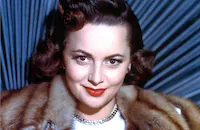
Olivia De Havilland

Robert Cummings

Charles Coburn

Jack Carson
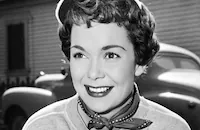
Jane Wyman
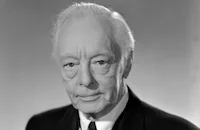
Harry Davenport

Gladys Cooper

Minor Watson
Nan Wynn

Curt Bois
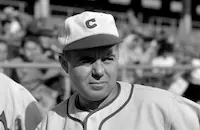
Ray Walker
David Clyde

Nana Bryant
Nydia Westman
Ruth Ford

Julie Bishop

Frank Puglia
Rosina Galli
Ferike Boros
David Willock
John Dilson
Ed Gargan
Frank Mayo
Ernie Anderson

Marjorie Hoshelle
Mary Field
Jody Gilbert
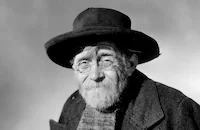
Christian Rub
Chester Clute

Emmett Vogan
Roland Drew
Bill Kennedy

Jack Mower
Edgar Dearing
Bill Edwards
Catherine Price
Whiskers
Vera Lewis
Harry C. Bradley
Crew
Leo F. Forbstein
Ira Gershwin
Ernie Haller
E. Y. Harburg
Frank Heath
Frederick Hollander
James Hopkins
Stanley Jones
Norman Krasna
Warren Low
Orry-kelly
Max Parker
Arthur Schwartz
Eric Stacey
Jack L. Warner
Perc Westmore

Photo Collections
Videos
Movie Clip


Hosted Intro
Film Details
Technical Specs

Award Wins
Best Writing, Screenplay
Articles
Princess O'Rourke
Knowing the circumstances surrounding the filming of Princess O'Rourke makes one realize how remarkable it is that de Havilland was able to sustain her sparkling comic playing. For some months the hard-working actress had been suffering from exhaustion, low blood pressure and a depressed energy level. Frequently ill and frustrated with Warner Bros. insistence on casting her in lightweight roles, she found the heat in the studio stifling during the movie's July filming. Since co-star Cummings was also making a picture at Universal, he was frequently absent from the set, leaving de Havilland to act opposite a double practice she hated. Because of character actor Coburn's faulty memory, numerous retakes were required in her scenes with him. (To her credit, she was invariably kind to Coburn and never lost patience with him.)
De Havilland began reporting late for work - behavior previously unheard of on the Warner lot - and walking off the set without permission and heading home. Tensions mounted between her and the studio she would eventually sue in a landmark case that set a seven-year limit, including any time spent on suspension, on studio-player contracts. Eric Stacey, assistant director on Princess O'Rourke, wrote in a memorandum to studio manager Tenny Wright that "We have no accurate record on this production of the delays directly attributable to Miss de Havilland's non-cooperation; It takes all day to get her out of her room and onto the set." The film at last was completed, 10 days behind schedule.
Producer: Hal B. Wallis
Director/Screenplay: Norman Krasna
Art Direction: Max Parker
Cinematography: Ernest Haller
Costume Design: Orry-Kelly
Editing: Warren Low
Original Music: Frederick Hollander, Arthur Schwartz
Principal Cast: Olivia de Havilland (Princess Maria), Robert Cummings (Eddie O'Rourke), Charles Coburn (Uncle), Jack Carson (Dave), Jane Wyman (Jean), Harry Davenport (Supreme Court Judge), Gladys Cooper (Miss Haskell)
BW-95m. Closed captioning.
by Roger Fristoe

Princess O'Rourke
Quotes
Trivia
Notes
Norman Krasna's onscreen credit reads: "Written and directed by Norman Krasna." News items in Hollywood Reporter add the following information about the production: Alexis Smith tested for the lead after Olivia De Havilland was suspended for refusing the part. Robert Cummings replaced Fred MacMurray when the latter dropped out of the film because of prior commitments to Paramount. Claude Rains was sought for a role in the film. The composers of "Honorable Moon" donated the money they received from Warner Bros. to a China Relief organization. Princess O'Rourke, which marked Krasna's directorial debut, was not released until a year after it finished shooting. Krasna won an Academy Award for his screenplay.















